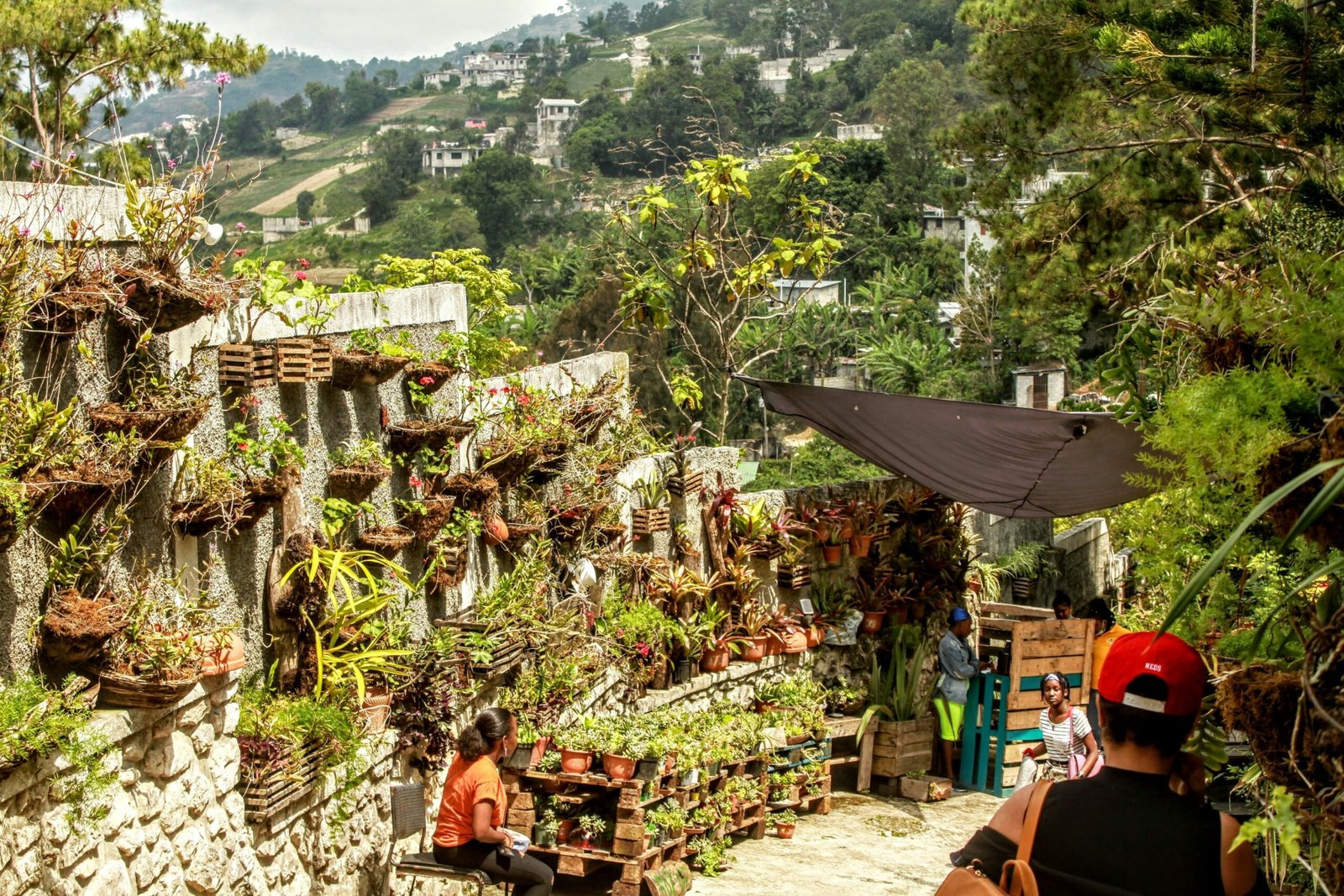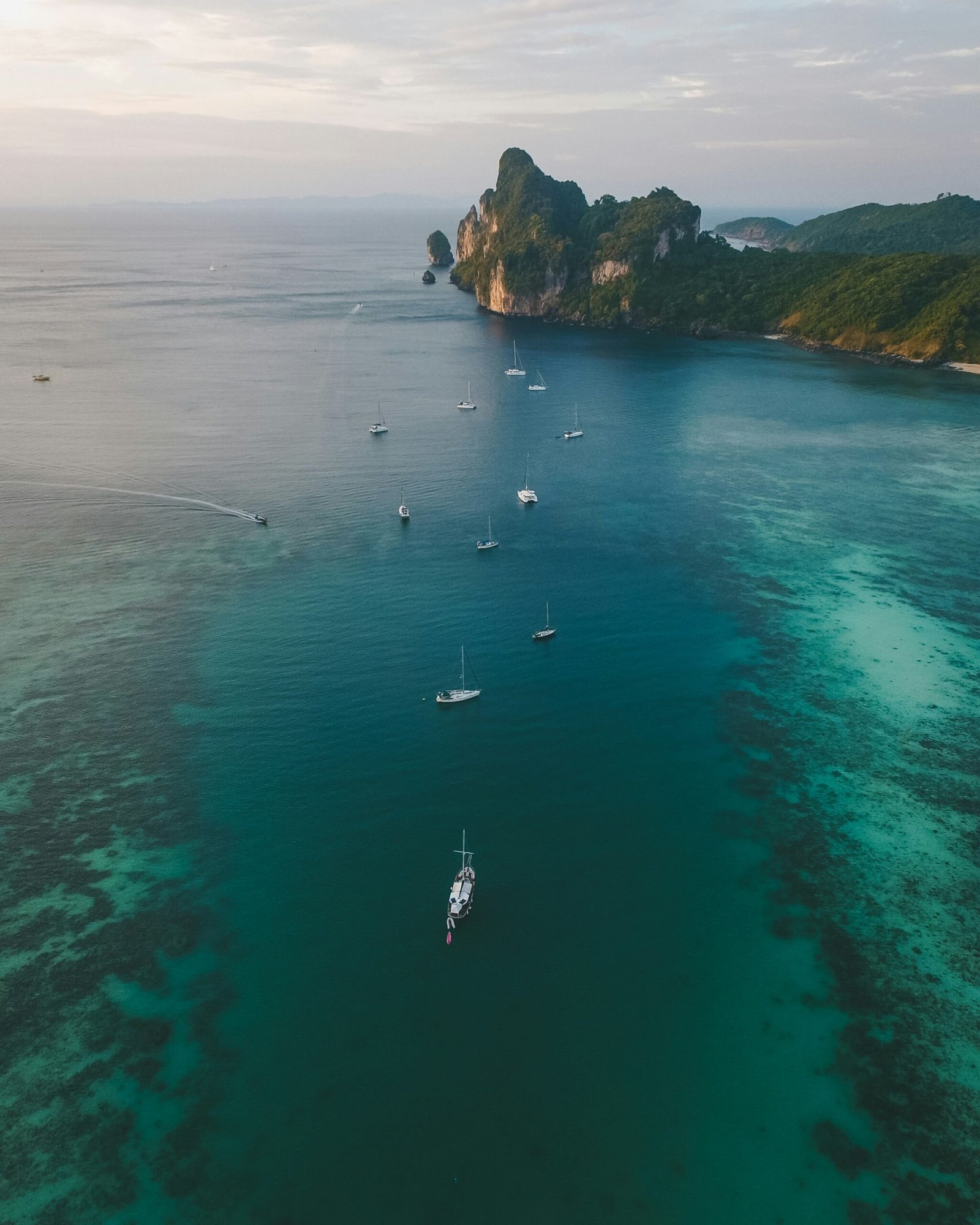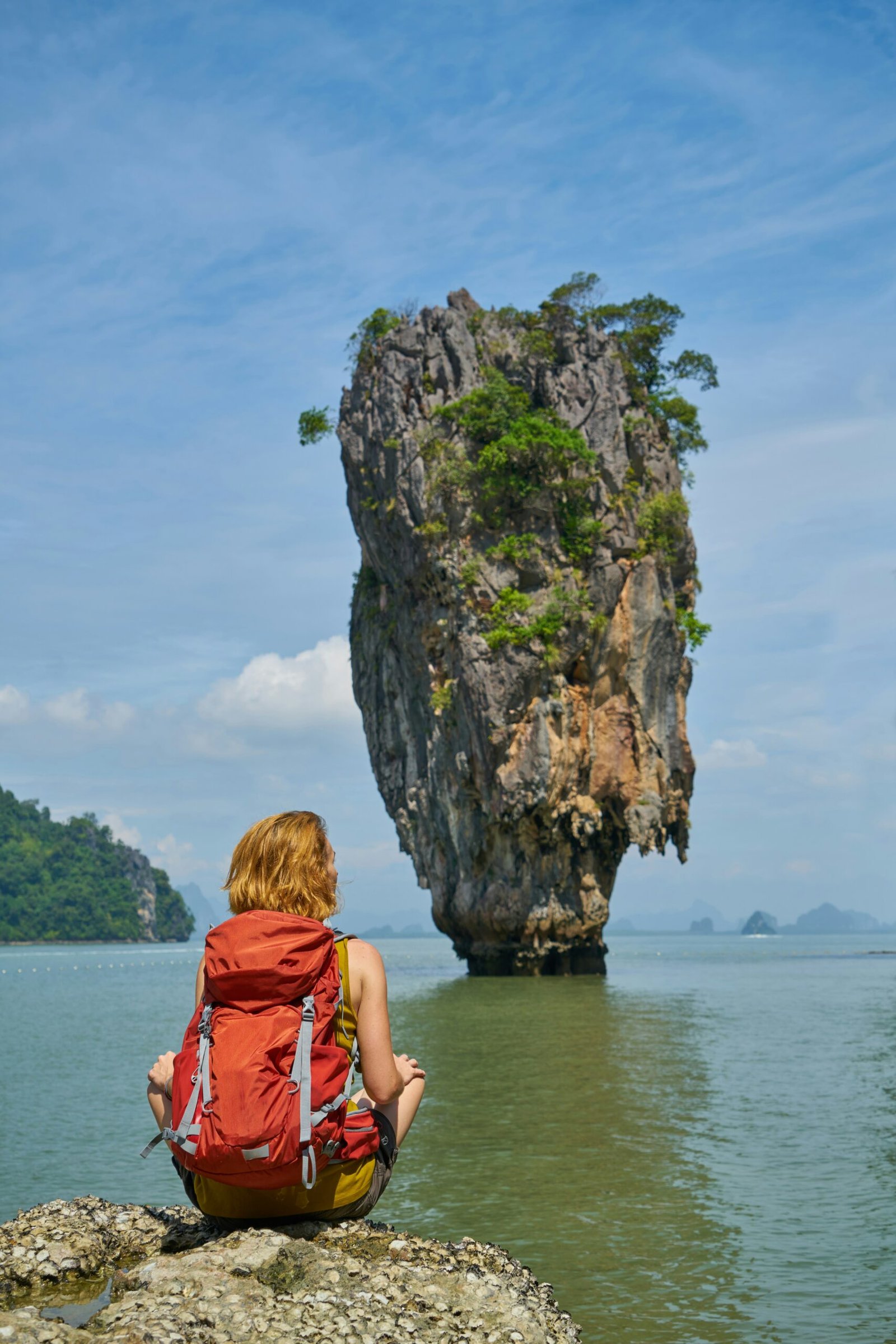Understanding Your Travel Goals
Defining your travel goals is a pivotal step in the travel planning process. Understanding what you hope to achieve from your journey can significantly shape your choices, including the destination, accommodations, and activities you prioritize. Travel motivations vary greatly among individuals. For some, the primary goal may be relaxation, seeking serene beaches or tranquil retreats to unwind from the hustle and bustle of daily life. Others might pursue adventure, desiring thrill-seeking activities such as hiking, skiing, or scuba diving in exotic locations.
Cultural experiences also motivate many travelers. The desire to immerse oneself in different cultures, whether through art, cuisine, or local traditions, can lead to the exploration of historical cities or lesser-known towns. For those traveling with family, the focus might shift toward creating unforgettable bonding experiences, which often involves selecting family-friendly destinations equipped with activities catering to all ages.
To effectively assess your travel goals, it is important to ask yourself several questions. What activities excite you most? Do you prefer a laid-back vacation or an action-packed itinerary? How do you envision your ideal travel environment? Taking time to reflect on these inquiries can clarify your preferences and ultimately guide your destination choice. Furthermore, understanding your travel goals allows you to make informed decisions, enhancing your overall travel experience.
Ultimately, knowing what you want from your trip not only narrows down your destination options but also enhances your travel planning efficiency. This clear focus makes it easier to evaluate potential destinations based on your interests, thus ensuring a fulfilling experience tailored to your desires. By aligning your travel plans with your goals, you set the stage for a memorable and enriching journey.
Budget Considerations
When planning a trip, determining a realistic budget is crucial to ensure a smooth travel experience. Setting a comprehensive budget involves examining various elements, including travel costs, accommodation, food, activities, and unforeseen expenses. Understanding the financial implications of your choices can significantly enhance your overall trip satisfaction.
To start, it is essential to outline the primary categories of spending. The largest portion of your travel budget is likely to be spent on transportation, including flights, train tickets, or fuel if driving. It’s advisable to conduct thorough research to find the best deals on airfare and transport; budget airlines or off-peak travel times can considerably reduce costs. Additionally, consider looking into alternative airports, which often offer cheaper options.
Accommodation is another key factor, with costs varying widely depending on the destination and type of lodging. Budget travelers might consider hostels, guesthouses, or short-term rentals, while those seeking luxury can compare hotel amenities and rates. Moreover, it is important to factor in hidden costs such as taxes, resort fees, or deposits that some establishments may impose.
Food and daily expenses can also accumulate quickly. Allocating daily meal budgets based on the destination’s average costs is recommended. Local markets and street food can provide authentic experiences at lower prices compared to upscale restaurants. Furthermore, don’t overlook incidental costs such as transportation within the destination, attraction entrance fees, and souvenirs, which can also impact your financial planning.
Destinations fall into various budget ranges. For example, Southeast Asia offers an affordable travel experience, while European cities might require more financial planning. By meticulously reviewing all aspects of your budget, you can choose a well-suited destination that aligns with your financial capacity while ensuring a memorable adventure.
Climate and Seasonality
When planning a trip, understanding the climate and seasonal variations of potential destinations is essential to enhance the overall travel experience. Different times of the year can significantly impact weather patterns, local events, and crowd sizes, which in turn influence both enjoyment and logistics of a journey. Factors such as temperature, humidity, and precipitation can dictate the suitability of various activities, necessitating thorough research into climate conditions specific to the chosen timeframe.
Peak tourist seasons often coincide with favorable weather, making certain locations bustling with energy and vibrancy. However, this influx of visitors can also lead to crowded attractions, longer wait times, and inflated prices for accommodations and flights. For example, many tropical destinations thrive during dry season, attracting travelers seeking sunshine, but also consequentially increasing demand. On the contrary, visiting during off-peak times can offer a quieter experience, allowing for more interaction with locals and often translating to cost savings on travel expenses. Opportunities for engagement in seasonal festivities or unique local experiences may also present themselves during these quieter periods.
In addition to examining duration and nature of anticipated weather, travelers should familiarize themselves with natural events that could influence their plans. For instance, certain areas may experience monsoon seasons, snowstorms, or wildflower blooms contingent upon climatic changes. Through thorough research regarding the climate conditions during their intended travel dates, individuals can make well-informed decisions about destination selection, ensuring a more gratifying and memorable journey.
Overall, by appreciating how climate and seasonality affect travel experiences, tourists can optimize their itineraries, allowing for both enjoyable interactions with their chosen destinations and practical accommodations that align with their travel preferences.
Travel Restrictions and Safety
When planning a trip, understanding travel restrictions and safety measures is crucial for making informed decisions regarding your destination. Each country or region may have specific guidelines or advisories in place that affect travel due to health, security, or other considerations. Therefore, it is essential to conduct thorough research to assess these factors before finalizing your travel plans.
Start by checking the official government websites or reliable travel advisory platforms for the latest updates on travel restrictions. These resources often provide detailed information on current entry requirements, including necessary documentation such as visas, vaccination proofs, and COVID-19 testing protocols. Additionally, knowing whether your destination has a quarantine policy or health protocols in place can help you prepare effectively for your journey.
Safety concerns can also span beyond health-related issues. Political stability, crime rates, and natural disasters might impact the overall safety of your chosen destination. Familiarize yourself with the local laws, cultural norms, and other situational factors that could pose risks or affect your travel experience. Engaging with travel forums or communities can offer valuable personal insights from fellow travelers who have recently visited the area.
Furthermore, assessing health safety measures is paramount. This includes evaluating local healthcare facilities’ capabilities and determining whether travel insurance that covers health-related incidents is advisable. Travelers should take personal precautions such as vaccinations and health screenings prior to departure. Awareness of emergency contacts and the location of your country’s embassy or consulate can also provide peace of mind during your travels.
In conclusion, prioritizing travel restrictions and safety while planning can lead to more secure and enjoyable experiences. By staying informed and taking necessary precautions, travelers can confidently navigate their chosen destinations.
Cultural and Language Considerations
When planning a trip, understanding the cultural nuances and language of the destination can significantly enhance the overall travel experience. Each country is imbued with unique customs, traditions, and social norms that shape daily life. Familiarity with these aspects can help travelers navigate social interactions more effectively, thereby avoiding potential faux pas that may arise from cultural misunderstandings. For instance, greetings, gestures, and dining etiquette can vary widely across different cultures, and awareness of these differences fosters respect and appreciation for local customs.
Language plays a crucial role in facilitating communication. While many global destinations commonly utilize English, proficiency varies significantly. To enhance connections with locals, learning a few basic phrases in the native language can be of great benefit. Simple greetings, expressions of gratitude, and polite inquiries can open doors to more meaningful interactions and allow travelers to engage with individuals on a personal level. Additionally, utilizing translation apps or pocket phrasebooks can alleviate frustrations that may arise from language barriers.
Moreover, immersing oneself in the local culture during travel can lead to enriching experiences. Travel enthusiasts should consider participating in local festivals, trying regional cuisine, or visiting cultural landmarks. Engaging in such activities fosters a deeper understanding of the destination and its people. It can also create opportunities to meet locals, share stories, and learn about their way of life. By respecting cultural differences and prioritizing effective communication, travelers can cultivate a more fulfilling and authentic experience.
In conclusion, taking cultural and language considerations into account while planning travel can significantly influence the quality of one’s journey. Embracing these elements will not only enrich personal experiences but also foster a greater appreciation for the diversity that the world offers.
Activities and Interests
When planning a trip, aligning your travel destination with your personal interests and preferred activities is vital to ensure an enjoyable experience. Different travelers seek various experiences that can greatly influence their choice of destination. Understanding the range of activities available can help identify locations that cater to your preferences.
For nature enthusiasts, destinations that offer breathtaking landscapes, wildlife encounters, and outdoor adventures are paramount. Places such as national parks, coastal regions, or mountainous areas can provide activities like hiking, bird watching, or kayaking. Exploring these natural wonders can create memorable experiences and foster a deeper connection with the environment.
If history fascinates you, consider destinations rich in cultural heritage and historical significance. Cities filled with ancient architecture, museums, and historical landmarks can offer educational experiences. Walking tours, archaeological sites, and historical reenactments are popular options that enhance the understanding of a region’s past. Traveling to areas known for their storied history can provide a profound context for contemporary culture.
For those who delight in culinary experiences, exploring food-focused destinations can yield delicious adventures. Consider regions renowned for their cuisine, such as Italy, Japan, or Mexico, where local dishes are classically prepared and celebrated. Culinary tours, food festivals, and cooking classes can enhance your travel experience, allowing you to immerse yourself in the local culture through its flavors.
Moreover, nightlife can play an essential role in your travel experience. Cities known for vibrant nightlife can provide entertainment options ranging from live music and theater to dance clubs and local bars. Researching the nightlife scene can help you select a destination that aligns with your interests, ensuring you make the most of your evenings after daytime explorations.
By thoughtfully considering your activities and interests, you can identify a destination that not only meets but exceeds your expectations for an unforgettable travel experience.
Travel Companions and Group Dynamics
When embarking on a travel adventure, the significance of travel companions cannot be overstated. The dynamics of the group can greatly influence the choice of destination and the overall experience. Whether traveling with family, friends, or independently, it is essential to consider the diverse preferences and expectations of each participant. Understanding these dynamics is crucial for ensuring a harmonious and enjoyable journey.
Traveling with family often involves catering to varying interests and age groups. For instance, a destination that appeals to children may not hold the same allure for adults. It is important to identify common interests and activities that can engage all family members. This may include choosing destinations that offer a mix of cultural experiences, recreational activities, and relaxation opportunities. Engaging in discussions about preferred activities and must-see attractions can help in striking a balance that satisfies everyone.
In contrast, traveling with friends may present an entirely different set of considerations. The group’s collective interests will influence the choice of location and activities. Friends may have specific preferences, such as beach destinations, adventure travel, or urban explorations. Open communication about each friend’s interests, budgets, and comfort levels is vital in crafting an itinerary that resonates with the entire group. Here, compromise and collaboration are key to successful destination selection.
For those considering solo travel, the decision-making process can be both liberating and challenging. The freedom to choose any destination allows for a deeply personal journey. However, it is still important to factor in individual preferences and safety considerations. Researching potential destinations, including local culture, activities, and accessibility, ensures a well-rounded experience that meets personal needs while enhancing the trip’s enjoyment.
Duration of Travel and Itinerary Planning
The duration of a trip plays a significant role in determining destination choices and shaping the overall travel experience. When planning a journey, it is essential to consider how the length of your stay can impact the depth of exploration possible within a specific locale. Longer trips allow for a more leisurely pace and the opportunity to discover multiple attractions and activities, whereas shorter excursions necessitate a more focused and strategic approach to itinerary planning.
For those with limited time, selecting destinations that offer a variety of experiences within close proximity can enhance the travel experience. Major cities often serve as ideal options because they typically provide a wealth of cultural, historical, and recreational sites that can be accessed with minimal travel time. For instance, if one is planning a weekend getaway, choosing a vibrant city with multiple points of interest ensures that travelers can maximize both their time and enjoyment.
To optimize travel itineraries, prioritize must-see attractions and activities based on personal interests and travel duration. It is prudent to identify key sights or experiences that resonate most, allowing for a more fulfilling adventure without the stress of overscheduling. Creating a flexible itinerary, incorporating buffer times for spontaneous exploration, also enhances the overall experience, as travelers can delve into local culture and unplanned encounters.
Moreover, utilizing travel resources such as apps can assist in visualizing and organizing itinerary components effectively. These tools can help track travel time between destinations, recommend nearby attractions, and provide updates on local events. By aligning the destination selection with travel duration, an enriching and memorable experience can be achieved, regardless of how long or short the trip may be.
Personal Recommendations and Research
When it comes to choosing the right travel destination, personal recommendations are invaluable. Gleaning insights from fellow travelers can significantly enhance your ability to make an informed choice. Conversations with friends, family, or acquaintances who have visited potential destinations often provide firsthand experiences and tips that are not readily available in traditional travel guides. These personal anecdotes can reveal hidden gems or unique aspects of a location that might not be highlighted in promotional materials.
In addition to personal recommendations, utilizing online resources such as travel blogs and forums can also serve as a powerful tool for your research. Travel blogs often present in-depth articles filled with real-life experiences, practical advice, and stunning visuals that inspire wanderlust. Blogs maintained by seasoned travelers frequently cover various topics, such as cultural intricacies, best times to visit, and essential packing lists, all of which can aid in narrowing down your options.
Social media platforms, notably Instagram and Facebook, have emerged as effective venues for travel inspiration. By following travel influencers and checking hashtags related to your desired destinations, you can discover unique perspectives and unfiltered glimpses into travel spots. This dynamic interaction allows travelers to engage in discussions, seek opinions, and share experiences in real time, further enriching your decision-making process.
Moreover, employing travel apps and websites can streamline your research. These tools allow you to compare prices, read reviews, and access user-generated content that showcases various destinations. Such informed decision-making not only adds to the excitement but also ensures that your chosen location aligns with your interests and travel style. By combining personal recommendations with thorough online research, you can confidently embark on your next adventure, equipped with the knowledge to select the perfect travel destination.










